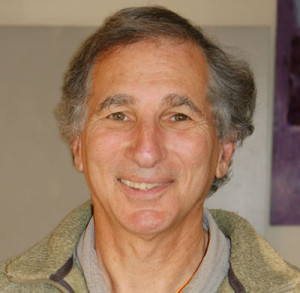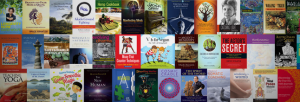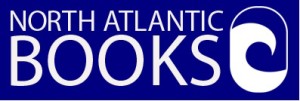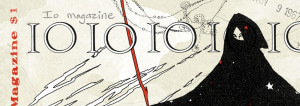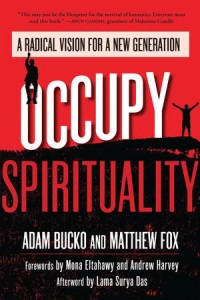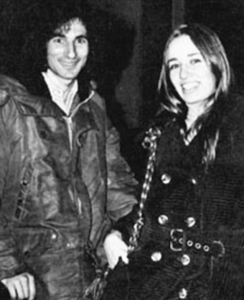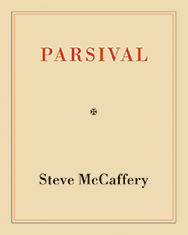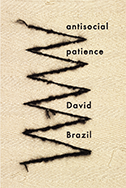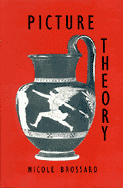David Wilk interviews Peter Costanzo of Associated Press
October 2, 2016 by David
Filed under Ebooks and Digital Publishing, PublishingTalks, Technology, The Future
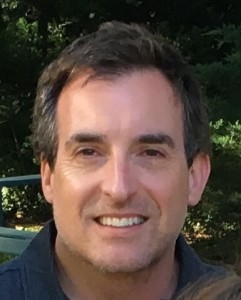 Publishing Talks began as a series of conversations with book industry professionals and others involved in media and technology about the future of publishing, books, and culture. As we continue to experience disruption and change in all media businesses, I’ve wanted to talk with people involved in our industry about how publishing might evolve as our culture is so influenced by technology, within the larger context of a change across human civilization.
Publishing Talks began as a series of conversations with book industry professionals and others involved in media and technology about the future of publishing, books, and culture. As we continue to experience disruption and change in all media businesses, I’ve wanted to talk with people involved in our industry about how publishing might evolve as our culture is so influenced by technology, within the larger context of a change across human civilization.
This series has expanded to include conversations that go beyond the future of publishing. I’ve talked with editors and publishers who have been innovators and leaders in independent publishing in the past and into the present, and will continue to explore the ebb and flow of writing, books, and publishing in all sorts of forms and formats, as change continues to be the one constant we can count on.
Back in 2011 I spoke with my friend Peter Costanzo, who even then was one of the most experienced and knowledgeable digital thinkers in the book industry. Five years later, as digital publishing has evolved and to some extent stabilized, I thought it would be useful to speak to him again to benefit from his perspective as an active participant in this aspect of our industry.
Peter is now the Digital & Archival Publishing Manager for The Associated Press. He is an award-winning book producer who also teaches the “New Media Technology: Formats and Devices” course at NYU.
Peter is also now known for being the person who taught Donald J. Trump (yes that guy) how to use Twitter! This story was widely reported earlier this year, gaining Peter considerable attention and perhaps, notoriety. Here is what the AP said in its story:
Costanzo crossed paths with Trump in 2009 when he was working as online marketing director for the publisher putting out the businessman’s book, “Think Like a Champion.” Twitter was still in its infancy at the time. But Costanzo saw the 140-character-per-message platform as a new tool that the real estate mogul could use to boost sales and reach a broader audience.
He was given seven minutes to make his pitch to Trump — “Not five minutes, not 10,” Constanzo said — in a boardroom at Trump Tower in Manhattan that appeared to be the same one used on Trump’s reality television show.
Trump liked what he heard.
“I said, ‘Let’s call you @RealDonaldTrump — you’re the real Donald Trump,'” Costanzo said. “He thought about it for a minute and said, ‘I like it. Let’s do it.'”
Our talk for this occasion focused on much more serious and meaningful matters, however.
You can follow Peter on Twitter @PeterCostanzo and Writerscast @writerscast.
Podcast: Play in new window | Download
David Wilk interviews Lee Klancher of Octane Press
September 6, 2016 by David
Filed under Publishing History, PublishingTalks
 Publishing Talks began as a series of conversations with book industry professionals and others involved in media and technology about the future of publishing, books, and culture. I’ve talked with publishing industry leaders about how publishing has and will continue to evolve and now include conversations that go beyond the future of publishing. I’ve had conversations with editors and publishers who have been innovators and leaders in independent publishing in the past and present. This series of talks continues to explore the ebb and flow of writing, books, and publishing.
Publishing Talks began as a series of conversations with book industry professionals and others involved in media and technology about the future of publishing, books, and culture. I’ve talked with publishing industry leaders about how publishing has and will continue to evolve and now include conversations that go beyond the future of publishing. I’ve had conversations with editors and publishers who have been innovators and leaders in independent publishing in the past and present. This series of talks continues to explore the ebb and flow of writing, books, and publishing.
For the past several years, I’ve been talking to editors and publishers of independent presses about their work. Many of them have been literary publishers. But there are a number of really excellent independent presses that have achieved success in other subject areas. It usually requires being specialized and knowledgeable about a specialized field, and being integral to a specific community of enthusiasts and readers, to find and sustain success.
Octane Press is one such endeavor. This fine publisher focuses on cars, farm machines, motorsports and motorcycles. This may seem a relatively narrow niche of readers, but it is one that works well for this publisher. Founded by photographer, writer and editor Lee Klancher, Octane Press is an excellent example of how to successfully build a print-based publishing business in the modern era. The company has won an array of awards, and has grown steadily since it began. I am very pleased to have had the opportunity to talk to Lee about his work and the story of Octane Press, and I think listeners interested in contemporary publishing will find his story compelling and his experience valuable.
Lee Klancher has been publishing great stories for more than twenty years. As an editor and publisher, he has worked on some of the most-respected and best-selling books in transportation publishing. He is a prolific author and an excellent photographer, and has contributed content to more than 30 books, as well as dozens of national magazines including Men’s Journal, Draft, and Motorcyclist.
Lee has taught writing and photography at the Minneapolis College of Art and Design. He is best-known for his photography of collectible farm tractors that appears in his books and calendars. Lee lives in Austin, Texas, where Octane Press is located. 

Podcast: Play in new window | Download
David Wilk interviews Brooke Warner of She Writes Press
July 19, 2016 by David
Filed under PublishingTalks, The Future
 Publishing Talks began as a series of conversations with book industry professionals and others involved in media and technology about the future of publishing, books, and culture. As we continue to experience disruption and change in all media businesses, I’ve been talking with some of the people involved in our industry about how publishing might evolve as our culture is affected by technology and the larger context of civilization and economics.
Publishing Talks began as a series of conversations with book industry professionals and others involved in media and technology about the future of publishing, books, and culture. As we continue to experience disruption and change in all media businesses, I’ve been talking with some of the people involved in our industry about how publishing might evolve as our culture is affected by technology and the larger context of civilization and economics.
I’ve now expanded the series to include conversations that go beyond the future of publishing. I’ve talked with editors and publishers who have been innovators and leaders in independent publishing in the past and into the present, and will continue to explore the ebb and flow of writing, books, and publishing in all sorts of forms and formats, as change continues to be the one constant we can count on.
I really enjoy talking to the innovators in our industry who are creating new modes of publishing and opportunities for writers. Brooke Warner and Kamy Wicoff founded She Writes Press in 2012 to provide writers with new publishing opportunities. Kamy operated the online community, She Writes, which was created to connect and serve women writers, both established and aspiring, and Brooke came from independent publishing.
Brooke’s first job in publishing was with the renowned North Atlantic Books in Berkeley (founded by Richard Grossinger and Lindy Hough). Subsequently, she was Executive Editor at Seal Press, working there for eight years. Toward the end of her time there, she felt she was witnessing firsthand the contracting publishing environment, where as editor, she was frequently rejecting well-written books, simply because the authors she was working with did not have the kinds of “author platforms” that commercial publishers now virtually require.
Kamy and Brooke envisioned a new kind of publishing company that would enable authors to be invited to publish based on the merit of their writing alone. They wanted to establish a publishing business for women writers that would itself enable the kind of a platform that could launch – and grow – the writing careers of their client authors. In 2014, She Writes Press became part of SparkPoint Studio, LLC., whose CEO is Crystal Patriarche.
She Writes is now a solid publishing partner for authors who might otherwise struggle with self publishing. With a strong editorial effort, traditional book distribution (through Ingram Publisher Services) and an in-house marketing and publicity team (through Patriarche’s publicity company, BookSparks) available to SWP authors, She Writes Press has become successful in the emerging category of “hybrid” publishers.
In this interview, where Brooke explains how She Writes works and the problems it is solving for now more than a hundred writers, and talks about the current and future of trade book publishing.
In addition to being publisher of She Writes Press, Brooke is president of Warner Coaching Inc., and author of Green-light Your Book, What’s Your Book?, How to Sell Your Memoir, and the co-author of Breaking Ground on Your Memoir. She currently sits on the boards of the Independent Book Publishers Association, the Bay Area Book Festival, and the National Association of Memoir Writers. She blogs actively on Huffington Post Books and SheWrites.com. She lives and works in Berkeley, California.
Length alert – we had a good time talking so this interview runs just over 45 minutes.
Podcast: Play in new window | Download
David Wilk interviews Jess Brallier
June 21, 2016 by David
Filed under Ebooks and Digital Publishing, Publishing History, PublishingTalks, The Future
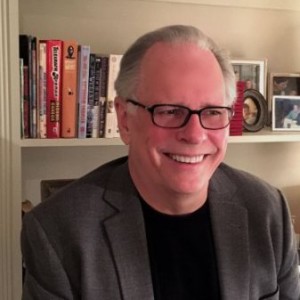 Publishing Talks began as a series of conversations with book industry professionals and others involved in media and technology about the future of publishing, books, and culture. As we continue to experience disruption and change in all media businesses, I’ve been talking with some of the people involved in our industry about how publishing might evolve as our culture is affected by technology and the larger context of civilization and economics.
Publishing Talks began as a series of conversations with book industry professionals and others involved in media and technology about the future of publishing, books, and culture. As we continue to experience disruption and change in all media businesses, I’ve been talking with some of the people involved in our industry about how publishing might evolve as our culture is affected by technology and the larger context of civilization and economics.
I’ve now expanded the series to include conversations that go beyond the future of publishing. I’ve talked with editors and publishers who have been innovators and leaders in independent publishing in the past and into the present, and continue to explore the ebb and flow of writing, books, and publishing in all sorts of forms and formats, as change continues to be the one constant we can count on.
Jess Brallier is one of those interesting, experienced innovators in publishing with whom I enjoy talking about all sorts of book related subjects. He’s worked in adult trade publishing, but has also had significant success with children’s and YA books, has long been involved in digital technologies, and notably was instrumental in the creation of the wildly best selling Diary of a Wimpy Kid by Jeff Kinney. And he is a prolific book writer himself, as well. His vast experience has provided him with a unique perspective about books and publishing, and he is just the kind of person who makes this interview series interesting and fun for me to do.
Here’s the more or less “official” biography Jess sent me: Jess M. Brallier currently serves the publishing industry as a media and revenue agnostic consultant to small, mid, and large publishing houses, and a developer of original IP, both print and animated. His career spans th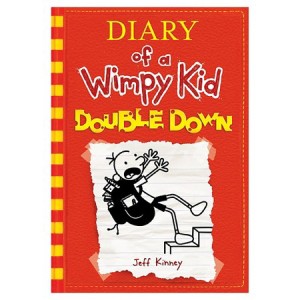 e publishing of books and digital storytelling from brick-and-mortar and the web, to virtual worlds and social media. He had his own children’s imprint, Planet Dexter (Penguin) and used the web to establish and launch newly $800M in original IP (Diary of a Wimpy Kid, Big Nate, Poptropica, Galactic Hot Dogs, etc.)
e publishing of books and digital storytelling from brick-and-mortar and the web, to virtual worlds and social media. He had his own children’s imprint, Planet Dexter (Penguin) and used the web to establish and launch newly $800M in original IP (Diary of a Wimpy Kid, Big Nate, Poptropica, Galactic Hot Dogs, etc.)
He also worked closely with, and was essential to causing bestsellers for, Norman Mailer, William Manchester, William Least Heat Moon, Herman Wouk, William Shirer, Bailey White, Anne Morrow Lindbergh, and many others. Brallier is a frequent speaker at both digital and book industry conferences, has served on the faculty of university-based publishing programs, and is the author or co-author of over 30 adult and children’s books.
I hope you enjoy listening to Jess as much as I did.
And not too long at 41 minutes, in case you were wondering.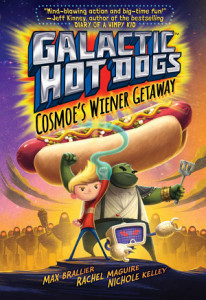
Podcast: Play in new window | Download
David Wilk Interviews Richard Grossinger of North Atlantic Books
May 22, 2016 by David
Filed under Publishing History, PublishingTalks, The Future
Publishing Talks began as a series of conversations with book industry professionals and others involved in media and technology about the future of publishing, books, and culture. As we continue to experience disruption and change in all media businesses, I’ve been talking with some of the people involved in our industry about how publishing might evolve as our culture is affected by technology and the larger context of civilization and economics.
I’ve now expanded the series to include conversations that go beyond the future of publishing. I’ve talked with editors and publishers who have been innovators and leaders in independent publishing in the past and into the present, and will continue to explore the ebb and flow of writing, books, and publishing in all sorts of forms and formats, as change continues to be the one constant we can count on.
It’s my hope that these conversations can help us understand the outlines of what is happening in publishing and writing, and how we might ourselves interact with and influence the future of publishing as it unfolds.
Over the past few years, I’ve talked to a number of independent publishers in an effort to document the extraordinary period of the past 40 years, which has been a sort of golden age of innovation and creativity, as publishing has literally been redefined. The number of great publishers established during this time in almost every category of publishing is pretty incredible.
One of the presses that has had a special impact on my own work is North Atlantic Books, founded by Richard Grossinger and Lindy Hough, as a transformation of their literary journal, Io, which they began together in 1965 as undergraduates at Amherst and Smith Colleges respectively. Richard and Lindy have been important mentors, friends, and colleagues to me for more than forty years, and their influence on my thinking about writing, ideas and books has been profound.
Since both Richard and Lindy are writers and editors with their own individual interests and styles, I thought it would make sense to interview each of them separately for this Publishing Talks series of conversations. Each of these conversations can stand independently or together. They tell two versions of an almost mythologic story, which I hope listeners will find as compelling as it was for me when I spoke to them.
Io is one of a number of influential literary magazines established in the sixties and seventies, publishing poets, film-makers and visual artists, many of whom were related to what has become known as the New American Poets, with influences ranging from Black Mountain College and the New York School to hermeticism and mystical spirituality. Io was singular in that it was most frequently a one-subject magazine, and this led eventually to the establishment of North Atlantic Books, which was incorporated in 1974 as a non-profit literary publisher in California.
Richard Grossinger was born November 3, 1944, and grew up in Manhattan. He graduated from Amherst College in June 1966 with a B.A. in English. That same month he married Lindy Hough, who attended Smith College in Northampton, Massachusetts.
He received a Ph.D. in anthropology from the University of Michigan for an ethnography incorporating economic and ecological studies of fishing communities in Eastern Maine and subsequently taught anthropology and other subjects at the University of Maine and Goddard College.
Io published 23 issues through 1976 before merging with North Atlantic and converting its publications to anthologies thereafter. Richard and Lindy served as the co-publishers of North Atlantic Books from 1974 onward, and Grossinger now functions mainly as acquisitions editor, while the press is run by its staff and board of directors.
Grossinger is the author of many books including Planet Medicine, The Night Sky, Embryogenesis, New Moon, Migraine Auras, On the Integration of Nature, and The Bardo of Waking Life.
This is the “official” description of North Atlantic Books, taken from its website:
North Atlantic Books is a nonprofit publisher committed to an eclectic exploration of the relationships between mind, body, spirit, and nature. Founded in 1974 by Richard Grossinger and Lindy Hough, NAB aims to nurture a holistic view of the arts, sciences, humanities, and healing. Over the decades, it has been at the forefront of publishing a diverse range of books in alternative medicine, ecology, and spirituality. NAB is the publishing program of the Society for the Study of Native Arts and Sciences, a 501(c)(3) nonprofit educational organization that promotes cross-cultural perspectives linking scientific, social, and artistic fields. With more than one thousand books in print, NAB has operated from Berkeley, California, since 1977.
My conversation with Richard Grossinger was recorded in December, 2016. This interview runs 52 minutes.
More about Richard Grossinger here.
Richard’s history of North Atlantic Books is on his website here. Companion interview with co-editor and co-publisher Lindy Hough is here.
Podcast: Play in new window | Download
David Wilk interviews Lindy Hough of North Atlantic Books and Io Magazine
May 9, 2016 by David
Filed under Ebooks and Digital Publishing, Publishing History, PublishingTalks, The Future
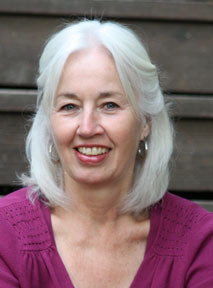 Publishing Talks began as a series of conversations with book industry professionals and others involved in media and technology about the future of publishing, books, and culture. As we continue to experience disruption and change in all media businesses, I’ve been talking with some of the people involved in our industry about how publishing might evolve as our culture is affected by technology and the larger context of civilization and economics.
Publishing Talks began as a series of conversations with book industry professionals and others involved in media and technology about the future of publishing, books, and culture. As we continue to experience disruption and change in all media businesses, I’ve been talking with some of the people involved in our industry about how publishing might evolve as our culture is affected by technology and the larger context of civilization and economics.
I’ve now expanded the series to include conversations that go beyond the future of publishing. I’ve talked with editors and publishers who have been innovators and leaders in independent publishing in the past and into the present, and will continue to explore the ebb and flow of writing, books, and publishing in all sorts of forms and formats, as change continues to be the one constant we can count on.
It’s my hope that these conversations can help us understand the outlines of what is happening in publishing and writing, and how we might ourselves interact with and influence the future of publishing as it unfolds.
Over the past few years, I’ve talked to several independent publishers in an effort to document the extraordinary period of the past 40 years, which has been a kind of golden age of innovation and creativity as publishing has literally been redefined. The list of great publishers established during this time in almost every category of publishing is amazing.
One of those presses that has had a special impact on my own work is North Atlantic Books, founded by Richard Grossinger and Lindy Hough as an outgrowth of their literary journal called Io, which they began together in 1965 when they were undergraduates at Amherst and Smith Colleges respectively. Richard and Lindy have been mentors, friends, and colleagues of mine for more than forty years, and their influence on my thinking about writing, ideas and books has been profound.
Since both Richard and Lindy are writers and editors with their own individual interests and styles, I thought it would make sense to interview each of them separately for this series of conversations. These two conversations can stand independently or together. They tell two versions of an amazing and almost mythologic story, which I hope listeners will find as compelling as it was for me when I spoke to them.
Io Magazine traveled with Lindy and Richard, moving to Michigan, Maine, Vermont and eventually California. Io is one of a number of influential literary magazines established in the sixties and seventies, publishing poets, film-makers and visual artists, many of whom were related to what has become known as the New American Poets, with influences ranging from Black Mountain College and the New York School to hermeticism and mystical spirituality. Io was singular in that it was most frequently a one-subject magazine, and this led eventually to the establishment of North Atlantic Books, which was incorporated in 1974 as a non-profit literary publisher in California.
North Atlantic Books has become one of the most successful and influential independent presses in America with a strong focus on spirituality and alternative health, while continuing its commitment to literary publishing.
Lindy graduated from Smith College and received an MFA in Creative Writing at Goddard College. She is the author of seven books of poetry, non-fiction, and fiction (including one book I published in 1978, the excellent Outlands & Inlands). She has taught literature and writing in Michigan, Maine, Vermont and California, and is currently finishing a novel.
This is the “official” description of North Atlantic Books, taken from its website:
North Atlantic Books is a nonprofit publisher committed to an eclectic exploration of the relationships between mind, body, spirit, and nature. Founded in 1974 by Richard Grossinger and Lindy Hough, NAB aims to nurture a holistic view of the arts, sciences, humanities, and healing. Over the decades, it has been at the forefront of publishing a diverse range of books in alternative medicine, ecology, and spirituality. NAB is the publishing program of the Society for the Study of Native Arts and Sciences, a 501(c)(3) nonprofit educational organization that promotes cross-cultural perspectives linking scientific, social, and artistic fields. With more than one thousand books in print, NAB has operated from Berkeley, California, since 1977.
Richard and Lindy are now retired from full time work with the press they founded, and each is now actively writing and editing books.
Our conversation was recorded in December, 2016. (55 minutes runtime)
Podcast: Play in new window | Download
David Wilk interviews John Ingram of Ingram Content Group
April 18, 2016 by David
Filed under Ebooks and Digital Publishing, PublishingTalks, Technology, The Future
 Publishing Talks began as a series of conversations with book industry professionals and others involved in media and technology about the future of publishing, books, and culture. As we continue to experience disruption and change in all media businesses, I’ve been talking with some of the people involved in our industry about how publishing might evolve as our culture is affected by technology and the larger context of civilization and economics.
Publishing Talks began as a series of conversations with book industry professionals and others involved in media and technology about the future of publishing, books, and culture. As we continue to experience disruption and change in all media businesses, I’ve been talking with some of the people involved in our industry about how publishing might evolve as our culture is affected by technology and the larger context of civilization and economics.
I’ve now expanded the series to include conversations that go beyond the future of publishing. I’ve talked with editors and publishers who have been innovators and leaders in independent publishing in the past and into the present, and will continue to explore the ebb and flow of writing, books, and publishing in all sorts of forms and formats, as change continues to be the one constant we can count on.
It’s my hope that these conversations can help us understand the outlines of what is happening in publishing and writing, and how we might ourselves interact with and influence the future of publishing as it unfolds.
This, my latest in this series of interviews with publishers and editors is a conversation with John Ingram, the chairman of Ingram Content Group Inc., which is now both the largest wholesaler in the book industry, and with its Lightning Source digital printing division, also the largest printer of print on demand books in the world. In addition, with the recent acquisition of Perseus Distribution, Publishers Group West, Legato and Consortium, Ingram is the largest distributor of independent publishers in all markets worldwide. Ingram also operates IngramSpark, which is now a major provider for self publishing authors.
Clearly Ingram is now pivotal to the book industry, as a key supplier of services, logistics and infrastructure to virtually every element and category within the business.
John Ingram deserves significant credit for recognizing the need for ongoing innovation and change in the book supply chain. Ingram Book Company and Lightning Source are both technology oriented operations, and with John’s leadership, the company has invested in a long list of important initiatives that have made major contributions to the growth and development of book publishing and distribution.
While many look at logistics and supply chains as boring necessities, I’d argue that they are very often the key elements of business success, and Ingram’s dedicated focus on invention, improvement and efficiency have been critical to keeping book publishing workable in a period of massive disruption.
John is a graduate of Princeton University, where he received his bachelor of arts degree in English in 1984. In 1986, he received his master of business administration degree from the Owen Graduate School of Management at Vanderbilt University.
John joined the family business, Ingram Industries Inc., in 1986, serving as the Assistant Treasurer and later as President of Tennessee Book Company (which became part of Ingram Content Group in 2009). He later served as President of Ingram Book Company, Vice President of Purchasing for Ingram Micro Europe, and Director of Purchasing for Ingram Micro Inc.
It is no small thing to foster innovation and experimentation inside a large company. It requires committed leadership and a willingness to both imagine a future and risk failures, learn from experiences both good and bad, constantly being aware of the broader picture of your industry and cultural trends, yet still maintaining focus on the core elements of your own business. None of this is easy.
I wanted to talk to John about some of the ways he and the Ingram companies have been able to manage change, and also to tap into his vision – how he sees the future of publishing and book distribution unfolding over the next few years. It is my pleasure to present this conversation with John Ingram for Publishing Talks, as part of my effort to document the key elements of a changing media environment as the book business moves into the future.![]()
![]()

Podcast: Play in new window | Download
David Wilk interviews Robert Pennoyer about the Whiting Awards
March 30, 2016 by David
Filed under Publishing History, PublishingTalks
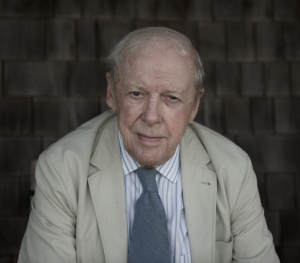 Publishing Talks began as a series of conversations with book industry professionals and others involved in media and technology about the future of publishing, books, and culture. As we continue to experience disruption and change in all media businesses, I’ve been talking with some of the people involved in our industry about how publishing might evolve as our culture is affected by technology and the larger context of civilization and economics.
Publishing Talks began as a series of conversations with book industry professionals and others involved in media and technology about the future of publishing, books, and culture. As we continue to experience disruption and change in all media businesses, I’ve been talking with some of the people involved in our industry about how publishing might evolve as our culture is affected by technology and the larger context of civilization and economics.
I’ve now expanded the series to include conversations that go beyond the future of publishing. I’ve talked with editors and publishers who have been innovators and leaders in independent publishing in the past and into the present, and will continue to explore the ebb and flow of writing, books, and publishing in all sorts of forms and formats, as change continues to be the one constant we can count on.
It’s my hope that these conversations can help us understand the outlines of what is happening in publishing and writing, and how we might ourselves interact with and influence the future of publishing as it unfolds.
It’s well known to all that literary writers more often than not struggle financially. This is especially true for writers early in their careers. According to most research, fewer than five per cent of writers who identify as “professional” are able to make their livings directly from writing.
Aside from the National Endowment for the Arts fellowships for writers, there are few programs that provide direct support to emerging and early career literary writers. That is why the Whiting Awards, given annually by The Whiting Foundation since 1985 have been so meaningful to literary culture, and of course, to the writers who have received this form of support.
The Whiting Foundation provides $50,000 to each of ten writers every year. Writers cannot apply for these awards–instead, Whiting accepts nominations from 100 individuals in the literary arts, and then an anonymous panel of six toils in secret throughout the year to read the work, and then argue over who should be selected based based on the criteria of early-career achievement and the promise of superior literary work to come.
Overall, more than $6.5 million has been awarded to 310 poets, fiction and nonfiction writers, and playwrights to date. This is an incredible program that has had a remarkable impact on American literature. Some of the now recognizable writers selected over the course of the last 30 years include David Foster Wallace, Colson Whitehead, Tracy K. Smith, Jeffrey Eugenides, Lydia Davis, Denis Johnson, Susan-Lori Parks, Mary Karr, Tony Kushner, Michael Cunningham, Alice McDermott, August Wilson, Jorie Graham, Mark Doty, Deborah Eisenberg, Ben Fountain, Justin Cronin, Tobias Wolff, Jonathan Franzen, Terrance Hayes, Ian Frazier, and John Jeremiah Sullivan, all of whom were “emerging” when their awards were given.
Every time I see a new list of Whiting Award winners, I feel compelled to explore their work, as I am sure I will find some whose writing will affect my imagination and attract me to continue to follow them in the future.
The recently announced 2016 winners are:
Brian Blanchfield, Nonfiction
Alice Sola Kim, Fiction
J. D. Daniels, Nonfiction
Catherine Lacey, Fiction
LaTasha N. Nevada Diggs, Poetry
Layli Long Soldier, Poetry
Madeleine George, Drama
Safiya Sinclair, Poetry
Mitchell S. Jackson, Fiction
Ocean Vuong, Poetry
So how did the Whiting Awards come about? The history of the Whiting Foundation is a fascinating story. I had the good fortune to publish the memoir of attorney Robert Pennoyer in 2015, As it Was, in which he recounts the story of the Whiting Foundation and its programs. Bob was one of the first trustees of the Whiting Foundation, as his firm had represented Flora Whiting, who was quite an amazing and brilliant woman.
As Bob writes, “In 1921, before IBM had even acquired its name, she had had the good fortune to sit next to Thomas J. Watson, Sr., at dinner. He told her, “My dear, I have a new company that’s going to be making things.” She invested in the stock when it was almost worthless and held on to it for almost fifty years. When she died, in 1970, she left $10 million to the foundation that she had established, with no restriction on how it should be used.”
At the outset, the foundation supported the humanities, but as its endowment continued to grow, it had to create some additional programs; Bob’s wife, Vicky was a poet, and she suggested that creative writers were in need of some meaningful support. The trustees agreed, and then hired Gerald Freund, who had worked with the MacArthur Foundation to establish their “genius” awards, to design a program to support emerging writers, and thus the Whiting Awards to Writers began.
I am pleased to present here my conversation with Bob Pennoyer, recorded in his office in New York City, talking about the Whiting Awards. His first-hand accounts of the history he has lived are unmatched. In fact, Bob’s book is full of such fine storytelling. Bob has been an attorney with the Patterson, Belknap law firm in New York City since 1958. Before that he served as counsel in the Defense Department (where he has the pleasure of testifying in front of Senator Joe McCarthy) and was in the US Navy during World War II.
Bob Pennoyer was president of the board of trustees of the Whiting Foundation for many years. In the 1960’s, Bob was a founder and trustee of Exodus House, a halfway house for addict rehabilitation in East Harlem and he has served as a trustee of Union Theological Seminary, Carnegie Institution in Washington, Columbia University and is currently serving as trustee of the William C. Bullitt Foundation and trustee emeritus of the Metropolitan Museum of Art and the Morgan Library and Museum.
“…The spirit that flows through these pages may be modest, but it is also filled with an irrepressible optimism and a faith in simple values that are both uplifting and marvelously contagious. As It Was is a lesson in a life well lived, and a tonic for dark and troubled times.”
— Scott Horton
Podcast: Play in new window | Download
David Wilk talks with James Sherry of Segue Foundation
February 22, 2016 by David
Filed under Publishing History, PublishingTalks
 Publishing Talks began as a series of conversations with book industry professionals and others involved in media and technology about the future of publishing, books, and culture. As we continue to experience disruption and change in all media businesses, I’ve been talking with some of the people involved in our industry about how publishing might evolve as our culture is affected by technology and the larger context of civilization and economics.
Publishing Talks began as a series of conversations with book industry professionals and others involved in media and technology about the future of publishing, books, and culture. As we continue to experience disruption and change in all media businesses, I’ve been talking with some of the people involved in our industry about how publishing might evolve as our culture is affected by technology and the larger context of civilization and economics.
I’ve now expanded the series to include conversations that go beyond the future of publishing. I’ve talked with editors and publishers who have been innovators and leaders in independent publishing in the past and into the present, and will continue to explore the ebb and flow of writing, books, and publishing in all sorts of forms and formats, as change continues to be the one constant we can count on.
It’s my hope that these conversations can help us understand the outlines of what is happening in publishing and writing, and how we might ourselves interact with and influence the future of publishing as it unfolds.
The latest in this series of interviews with important independent publishers and editors is my talk with yet another old friend, James Sherry, founder of both Roof Books and the Segue Foundation, in New York City. I have followed and admired his writing and publishing for more than three decades now.
Sherry is the author of 14 books of poetry and prose, most recently Oops! Environmental Poetics (2014). He is the publisher of Roof Books, a press he founded in 1979, and the Segue Foundation, a nonprofit chartered in 1977. He lives in New York City.
With Roof Books and Segue, James has been a significant force in the promotion of experimental and innovative writing, both as a publisher, with more than 150 titles now in print, and as a venue for live events and poetry readings. At one point, Segue was the distributor for some of the most significant literary journals and small presses, including, notably, L=A=N=G=U=A=G=E, edited by Charles Bernstein and Bruce Andrews.
For this interview, I had the opportunity to speak with James Sherry in New York City, where he and Segue are going strong – the Segue calendar of events demonstrates some of the best of contemporary innovative writing, and Roof Books also continues to produce significant publications that anyone interested in modern poetry should be following.
Podcast: Play in new window | Download
David Wilk talks with John O’Brien of Dalkey Archive Press
January 26, 2016 by David
Filed under Publishing History, PublishingTalks
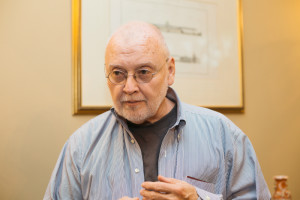 Publishing Talks began as a series of conversations with book industry professionals and others involved in media and technology about the future of publishing, books, and culture. As we continue to experience disruption and change in all media businesses, I’ve been talking with some of the people involved in our industry about how publishing might evolve as our culture is affected by technology and the larger context of civilization and economics.
Publishing Talks began as a series of conversations with book industry professionals and others involved in media and technology about the future of publishing, books, and culture. As we continue to experience disruption and change in all media businesses, I’ve been talking with some of the people involved in our industry about how publishing might evolve as our culture is affected by technology and the larger context of civilization and economics.
I’ve now expanded the series to include conversations that go beyond the future of publishing. I’ve talked with editors and publishers who have been innovators and leaders in independent publishing in the past and into the present, and will continue to explore the ebb and flow of writing, books, and publishing in all sorts of forms and formats, as change continues to be the one constant we can count on.
It’s my hope that these conversations can help us understand the outlines of what is happening in publishing and writing, and how we might ourselves interact with and influence the future of publishing as it unfolds.
The latest in this series of interviews with publishers and editors is my talk with another old friend, John O’Brien, founder of Dalkey Archive Press and the Review of Contemporary Fiction. The journal began in 1981 and the press was launched in 1984. It’s a remarkable and singular enterprise, committed to publishing internationally as almost no other American publisher. Today the press and journal are based in Victoria, Texas through the auspices of the University of Houston at Victoria, and in Dublin, Ireland, with offices at the Trinity University.
If you are interested in the history of the press as explained by John himself, there is an excellent descriptive piece about Dalkey on its own website here. John places the Review (RCF) and the press (Dalkey) as coming literally from his own interest in writers of substance who were and still are not often included in the mainstream of literary culture. In that way, John and his publishing have always been self identified as outsiders, but of course through his own critical and publishing efforts, and other circumstances, no small number of the writers that have either been covered in RCF or published by Dalkey (or both) have reached a meaningful level of recognition and significance over these many years of the his work.
It is no small thing to have been at this work for so long, and so well. The internationalist tendency here is a strong one, from Luisa Valenzuela to Wallace Markham, to Flann O’Brien and many others, John has helped introduce an incredible range of writers from all over the world to North American readers, and vastly expanded the literary landscape for many of us. His commitment to a range of American writers like Paul Metcalf, Gilbert Sorrentino, Doug Woolf and many others, has been nothing short of heroic.
Writing on the Press’ own website, this is what John says about his goals for Dalkey and RCF: “I wanted the Press to define the contemporary period, or at least what I saw as what was most important in the contemporary period. Further, I wanted these books permanently protected, which is why from the start the Press has kept all of its fiction in print, regardless of sales. And as with the Review, I wanted the books to represent what was happening around the world rather than more or less being confined to the United States. Like the Review, Dalkey Archive Press was and is a hopelessly quixotic venture.”
In 2011, Dalkey Archive received a Lifetime Achievement Award from the National Book Critics Circle, and in 2015 John O’Brien was made a knight in the Orde des Arts et des Lettres for his contributions to publishing French literature abroad. Not bad for such a “hopelessly quixotic” operation.
John and I have many interests in common and count each others as friends and fellow travelers in literature and writing. Having this conversation about RCF and Dalkey, programs I believe have incalculable value to our literary culture, was a true pleasure for me, and one that I will always treasure.
Length alert: this is a longer conversation than most (68 minutes), but I hope will be well worth the time spent in listening. Thanks!
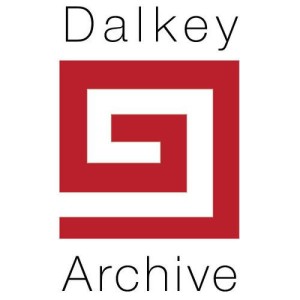
Podcast: Play in new window | Download

